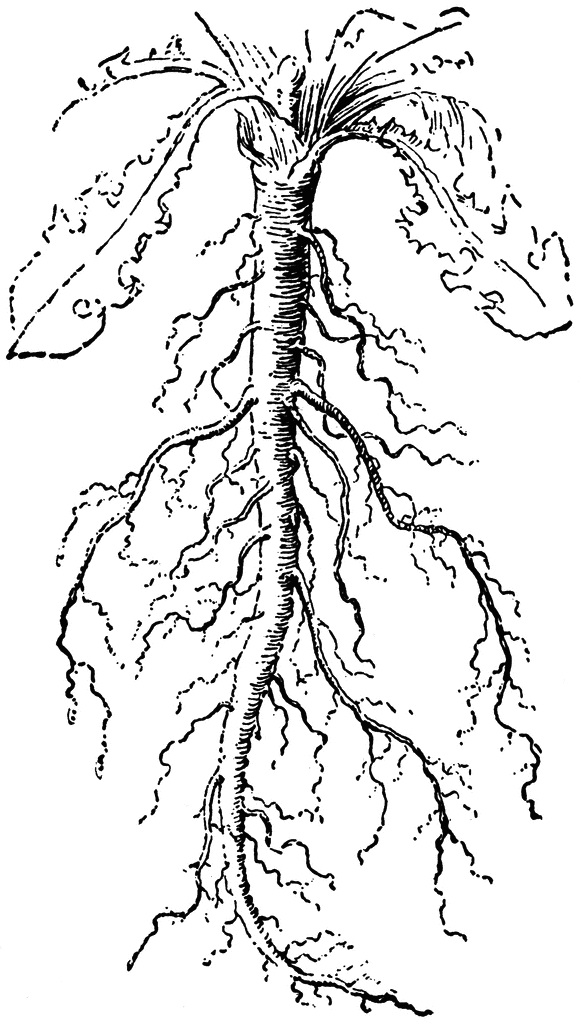From Ecclesiasticus:
Wisdom praises herself, and tells of her glory in the midst of her people. * * * “I took root in an honored people, in the portion of the Lord, his heritage.”
(From the Daily Office Lectionary – Sirach 24:1 & 12 (NRSV) – October 28, 2014)
 According to Ben Sira, personified Wisdom is rooted in Jerusalem; at the command of the Creator, she has take up residence in Zion among the Chosen People. These days I have a hard time seeing anything which can be counted as “wisdom” coming out of the modern government of that land, and I could write hundreds, even thousands, of words about what I believe to be the foolishness of the criminal injustice being perpetrated on the Palestinian people by that government. But I won’t. Not today. Today, my thoughts run to the question of rootedness, to the metaphor of sustenance drawn from a particular place, to the spatial and cultural peculiarity of wisdom, and to what happens when one leaves a particular place and takes up residence in another.
According to Ben Sira, personified Wisdom is rooted in Jerusalem; at the command of the Creator, she has take up residence in Zion among the Chosen People. These days I have a hard time seeing anything which can be counted as “wisdom” coming out of the modern government of that land, and I could write hundreds, even thousands, of words about what I believe to be the foolishness of the criminal injustice being perpetrated on the Palestinian people by that government. But I won’t. Not today. Today, my thoughts run to the question of rootedness, to the metaphor of sustenance drawn from a particular place, to the spatial and cultural peculiarity of wisdom, and to what happens when one leaves a particular place and takes up residence in another.
Consider this mundane example: Recently I visited Palestine and Israel on pilgrimage to various Christian holy sites. With a group of fellow pilgrims, I traveled by motor coach. At every stop our hosts reminded us, and eventually we began to remind each other, to take hats, water bottles, and cameras. Obviously the third was because we were tourists as well as pilgrims, but the first two were matters not merely of comfort but of survival. A hat to protect oneself from the sun, a bottle of water to rehydrate in an extremely arid place, there was wisdom in these admonitions. Having grown up in the desert, I also felt myself re-rooted in a familiar past.
But now I live in Ohio, a place of much more temperate climate most of the time, a place of rivers, lakes, ponds, and (to a desert rat) high humidity, a place where trees and shade abound. Protection from the sun, hats and water bottles, are not a necessity. Here, at various times of the year, a different wisdom prevails – sometimes it’s a reminder to put on heavy coat against cold and wind and lake-effect snow; at others, it’s the need for bug repellant.
I recently read an article about long-distance hiking and the need to plan ahead and to cache supplies, to place resources of particular types in safe but accessible locations along one’s route. The word resource caught my attention: to source again, is that not what it means when used as a verb. Like wisdom and her metaphorical roots, we stop and put out our “roots” and take what is needed in each place, in each culture; we are “re-sourced,” no longer drawing sustenance from the original place where our “roots” were sunk, taking in a new sort of nourishment in this different place.
In one place, hats and water bottles are wise; in another they are completely unnecessary and expending the effort to carry them is folly. In one place, heavy coats are needed; in another, they are useless. In one place, something to keep away the mosquitoes; in another, no mosquitoes. Wisdom in one place is folly in another. We must put down our “roots” to discover which it is.
Is biblical wisdom culturally dependent? Because Lady Wisdom was “established in Zion” and rooted in Jerusalem, is she not relevant in another place? Or can she be “re-sourced,” transplanted and re-invigorated in a new land? Is there a deeper source of wisdom common to all places into which her tap-root reaches? Is that deeper source available to us regardless of culture and place? I believe there is and perhaps the folly of our time is that we transplant and re-source ourselves too often to access it; we draw only from the superficial wisdom of differing places and fail to tap into the deeper strata of common wisdom.
====================
A request to my readers: I’m trying to build the readership of this blog and I’d very much appreciate your help in doing so. If you find something here that is of value, please share it with others. If you are on Facebook, “like” the posts on your page so others can see them. If you are following me on Twitter, please “retweet” the notices of these meditations. If you have a blog of your own, please include mine in your links (a favor I will gladly reciprocate). Many thanks!
====================
Father Funston is the rector of St. Paul’s Episcopal Church, Medina, Ohio.



Leave a Reply